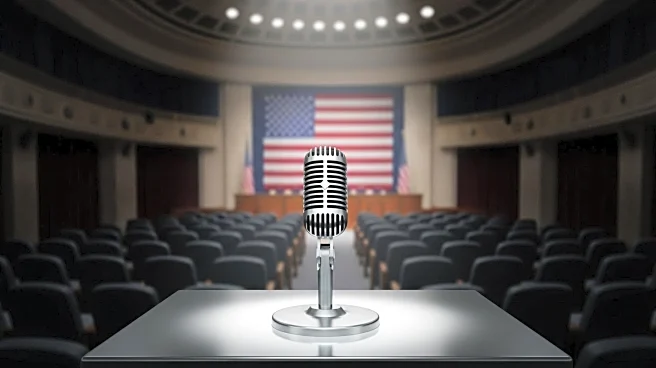What's Happening?
The Pentagon has introduced new restrictions on media coverage of the U.S. military, requiring reporters to sign affidavits pledging not to disclose unauthorized information. These measures, outlined by Defense Secretary Pete Hegseth's office, have sparked criticism from media organizations, who argue that the policies are designed to stifle a free press. The restrictions limit reporters' movements within the Pentagon and require them to rely solely on formal press releases for information. Media outlets are concerned that these rules will isolate reporters and hinder their ability to report on military affairs. The Pentagon Press Association has voiced its objections, stating that the policies fail to honor the American public's right to be informed about military operations.
Why It's Important?
The new press restrictions have significant implications for transparency and accountability in military reporting. By limiting access to information, the Pentagon's policies could prevent journalists from conducting in-depth investigations and holding the military accountable for its actions. This move may also affect public trust in the military and government institutions, as citizens rely on the media to provide accurate and comprehensive coverage of national security issues. The restrictions could lead to a chilling effect on journalism, where reporters may be deterred from pursuing stories that challenge official narratives. Furthermore, the policies may set a precedent for other government agencies to impose similar restrictions, potentially undermining press freedom across the country.
What's Next?
Media organizations are considering legal action to challenge the Pentagon's new policies, and discussions are ongoing about potential revisions to the restrictions. The Pentagon has circulated an updated draft of the rules, giving reporters a week to review and sign. However, concerns remain about the impact of these policies on press freedom. News outlets are weighing their options, with some considering alternative methods of covering military news without relying on physical access to the Pentagon. The situation is likely to evolve as media organizations continue to advocate for changes and seek to protect their ability to report on military affairs.











